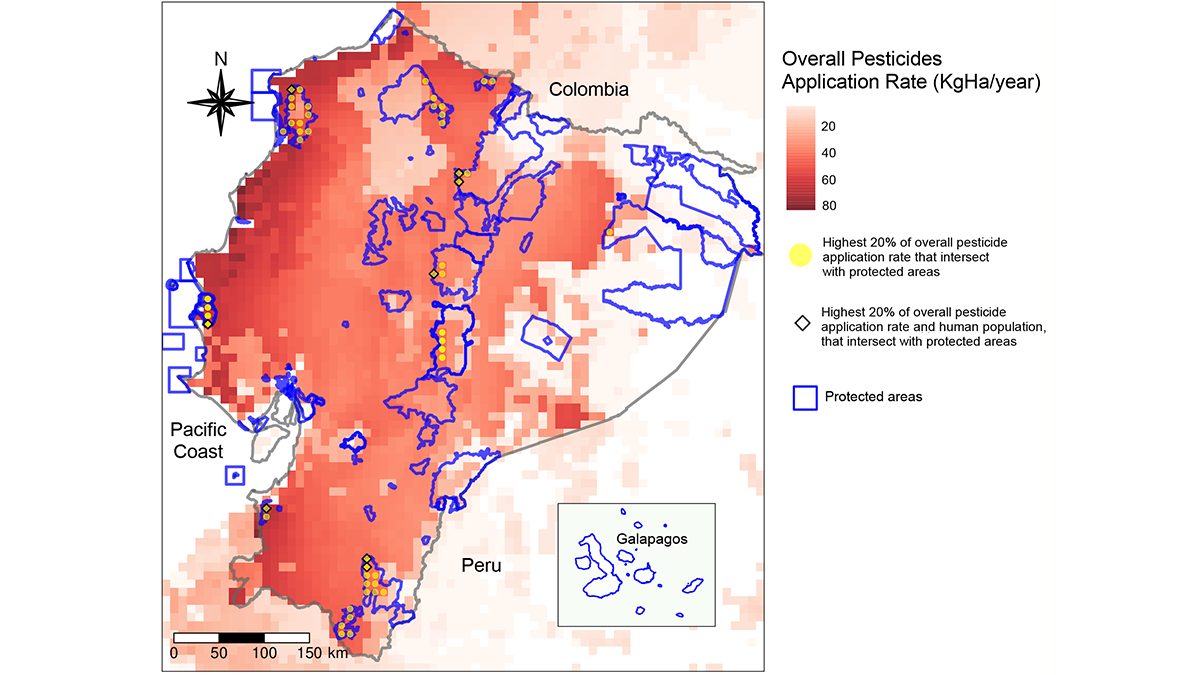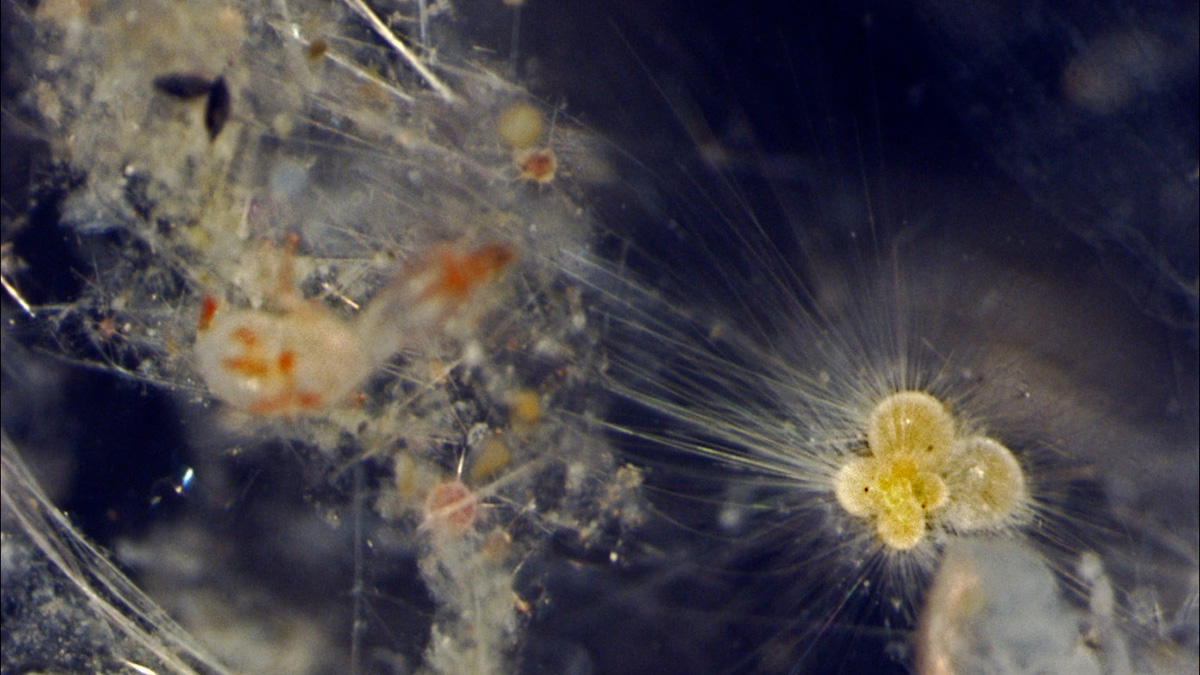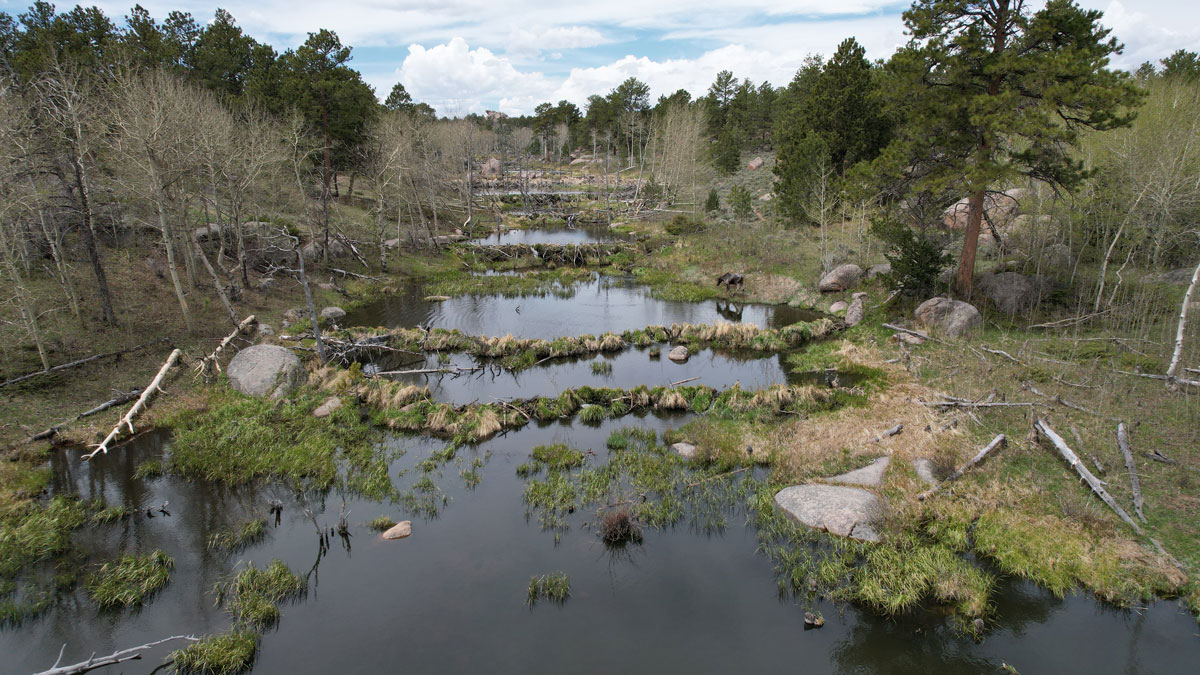A long-term experiment in southwestern Greenland reveals that the presence of musk oxen and caribou helps stave off declines in Arctic tundra diversity brought on by climate change.
biodiversity
Mapeo de la convergencia entre pobladores, pesticidas y áreas protegidas
La exposición a pesticidas puede afectar la salud humana y de los ecosistemas. Una investigación reciente aplica modelos cartográficos en Ecuador, los cuales pueden ser exportados a otras escalas para limitar estos impactos adversos en otras regiones.
Mapping Intersections of Pesticides, Protected Areas, and People
Pesticide exposures can impact human and ecosystem health, and new research uses a modeling approach applied to Ecuador that can be scaled and exported to limit negative impacts in other regions.
Harpy Eagles Concentrate Precious Nutrients in the Amazon
Amazon soils are usually low in the nutrients that plants covet, but harpy eagles can create local hot spots with their poop and prey.
Marine Life May Be Headed to Higher Latitudes
Researchers tracked plankton through a changing climate over 8 million years. Now, that knowledge is helping scientists understand the coming effects of warming oceans.
Gardens Are Good for the Neighborhood
A new study highlights the benefits of urban gardens for their human caretakers and local ecosystems.
Conserving Biodiversity Could Alter Crop Production
Researchers examined the land use trade-offs that could come with protecting at-risk species. But some scientists question what should be prioritized.
Making Sense of the Great Barrier Reef’s Mysterious Green Donuts
Researchers set sail to the Great Barrier Reef to study how ring-shaped algae deposits formed and evolved, what feeds them, and the diversity of creatures that call them home.
Why Tropical Forests Are Important for Our Well-Being
Tropical forests play a critical role in supporting human well-being, food security, and the maintenance of biodiversity.
Scientists EEAGER-ly Track Beavers Across Western United States
Efficiently tracking nature’s engineers—beavers—at the scale of entire watersheds over time is now possible, thanks to a new artificial intelligence–trained model called EEAGER.










